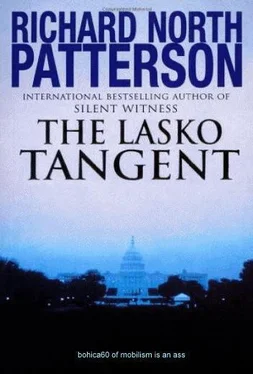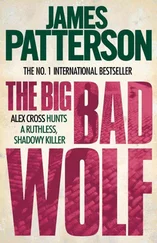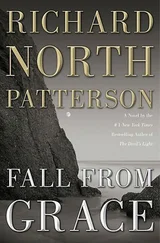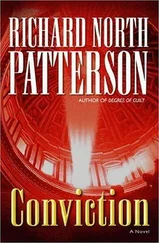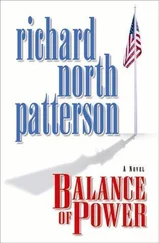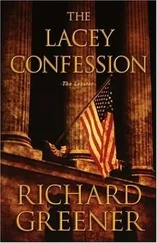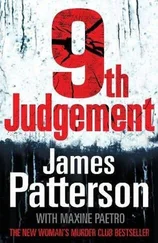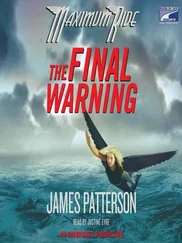Richard Patterson - The Lasko Tangent
Здесь есть возможность читать онлайн «Richard Patterson - The Lasko Tangent» весь текст электронной книги совершенно бесплатно (целиком полную версию без сокращений). В некоторых случаях можно слушать аудио, скачать через торрент в формате fb2 и присутствует краткое содержание. Жанр: Криминальный детектив, на английском языке. Описание произведения, (предисловие) а так же отзывы посетителей доступны на портале библиотеки ЛибКат.
- Название:The Lasko Tangent
- Автор:
- Жанр:
- Год:неизвестен
- ISBN:нет данных
- Рейтинг книги:3 / 5. Голосов: 1
-
Избранное:Добавить в избранное
- Отзывы:
-
Ваша оценка:
- 60
- 1
- 2
- 3
- 4
- 5
The Lasko Tangent: краткое содержание, описание и аннотация
Предлагаем к чтению аннотацию, описание, краткое содержание или предисловие (зависит от того, что написал сам автор книги «The Lasko Tangent»). Если вы не нашли необходимую информацию о книге — напишите в комментариях, мы постараемся отыскать её.
The Lasko Tangent — читать онлайн бесплатно полную книгу (весь текст) целиком
Ниже представлен текст книги, разбитый по страницам. Система сохранения места последней прочитанной страницы, позволяет с удобством читать онлайн бесплатно книгу «The Lasko Tangent», без необходимости каждый раз заново искать на чём Вы остановились. Поставьте закладку, и сможете в любой момент перейти на страницу, на которой закончили чтение.
Интервал:
Закладка:
I pulled myself together. “So you believe Lasko killed Lehman.”
“You made a believer out of me,” he answered quietly, “when they tried to kill you.”
“So what are you going to do now?”
“For openers, I’m going to give you all the protection you need.” The flat voice picked up emphasis. “Right now, you’re the only person who can fuck him up. That means that he may kill you if he gets a clear shot.”
“So what am I supposed to do?”
“Nothing. Sit tight.”
“Look, you said you need a link between Lehman, Martinson, and my investigation. I’m close. One day, two days-if I’m right, and lucky, I can give you that.”
“And if you’re not lucky, you’re dead.”
“Lieutenant, tonight, sitting here, I finally had to face all this. If he wants to kill me, he can do it next month, next year, any time he wants. The only way to protect myself is to finish him.”
Di Pietro leaned back and closed his eyes in thought. “What would you do?”
“If I don’t tell you, then you don’t have to lie when someone asks.”
His eyes snapped open. “What the hell does that mean?”
So I told him a little about life at the ECC. He shook his head. “And I thought Massachusetts politics stunk.”
I smiled. “It does, Lieutenant. It all does. But I guess you can see my problem.”
“Who down there will help you?”
“I don’t know. But you will.”
He eyed his coffee cup as if the answers were hiding in it. “I could hold you here as a material witness.”
“That would be no favor to me.”
He said nothing. I looked at my watch. 2:30.
“When will all this hit the papers?” I asked.
He craned toward the clock. “It’s too late for the mornings. It’ll make the first evening edition, about noon tomorrow.”
“OK,” I said. “Listen, I’d like to take off.”
He gave me a hard look. “I’ll get someone to run you to the hotel and put an officer by your door.” It was his answer.
“Thanks.” He picked up the phone and called for a car. I remembered something. “By the way, Lieutenant, that car I rented is wrecked, isn’t it?”
“Pretty well. And it’s physical evidence. That’s a nice bullet hole.”
“Could you call the car rental at the airport?”
“Why?”
“I don’t quite feel up to explaining all this.”
He almost smiled. “All right.”
A cop showed up to drive me. I stood. Di Pietro raised a cautionary hand. “Look, Christopher, tomorrow Lasko won’t be liking you any better than he did tonight. He won’t leave Boston, but he’s got people who work for him. Don’t take chances you don’t have to.”
I nodded. “Thanks, Lieutenant.”
His face was full of misgivings. “Good luck,” he said finally, and waved me out the door.
The next morning I shaved, packed, and checked the expiration date on my Visa card. I made one phone call. Then I took a cab to the airport and caught a plane to Miami.
Thirty-Two
The phone call had been to Robinson. He’d picked up the phone and asked how I was, like you’d ask any friend who wasn’t there. Fine, I said, knowing then that Martinson and I hadn’t hit the morning papers. Then I asked for the number of his Florida friend, the state bank examiner. Could he do anything, Robinson asked. I said it would be easier for me to call. OK-when would I be back? I’d be leaving this morning, I replied. Which was true enough.
They probably wouldn’t miss me until this afternoon, when the news broke. And I didn’t think I’d been followed to the airport. I tried to be happy with that. But there was a delayed reaction, one that made me sick. I’d nearly been killed, nearly gotten Martinson killed-and accomplished nothing in the process. I hadn’t liked that option during Vietnam and didn’t like it now. The idea of death was ugly and enormous, like infinity made personal. A flight attendant brought me a doughnut. I couldn’t eat it.
But others had died-the two men. I tried to feel something, but it didn’t work. I wasn’t sorry and never would be.
Eventually I tried my coffee and went over what had happened. I’d turned up where I wasn’t expected, broken the carefully placed boundaries. Outside the boundaries, events had a violent, irrational quality. It scared me, badly. Now I was racing to catch up to the answers before anyone caught up with me. That seemed to be the only way out. And no one had paid for Lehman.
I looked for the first time at the faces around me. They chatted and read, on their way to sell things or see things or do whatever fit with the rest of their lives. I envied that. So I decided to imitate them for a while, and asked the girl for the Wall Street Journal. I noticed then that she looked like Mary, but without the eyes. Amazing, I thought, the difference that makes.
She brought the Journal. It took about a minute to spot the item in the “News in Brief” section on page one:
White House sources indicate that Joseph P. McGuire, tough-minded chief of the ECC’s Prosecutions Bureau, is now favored over three other prospects for appointment as a commissioner. The prospective vacancy in the seven-man commission follows the resignation of Commissioner Charles Ludlow, who yesterday announced plans to return to private practice.
It was a minor Washington classic. Dangle the bait for the eager candidate, but remind him that there are others available. And while you’re at it, let the press do some digging for you. If it comes out that your boy is a neo-Nazi or was caught last year in Central Park dressed up as Marie Antoinette, you can dump him with a bland denial that he ever crossed your mind. The motive here was pretty clear-to confirm the deal and remind McGuire of the price. Don’t push the Lasko case. It was a message he could hardly miss. I folded the Journal and picked up my coffee. It was cold.
We reached Miami about 2:30. I walked into the terminal, picked up my bags, and crammed them into an airport locker. Then I found a pay phone and called Ken Parrish, Robinson’s friend. Parrish was happy to help. I thanked him and hung up. I looked around. No one near.
The only thing left was to catch a taxi. I stepped through an exit door onto a steaming sidewalk which curved around a small taxi lane. A line of taxis sat by the curb. I waited, staring at the lurid green palm tree which jutted from a patch of grass across the lane. It was clearly thriving. A great place for palms, Miami.
I got edgy. Finally, a cab peeled lazily out of the line and eased up next to me. The cabbie leaned out the door and motioned me to the curb. I got in. My driver had dark hair and a mustache-Cuban, I thought. He turned sideways and spoke to a window. “Where you go, sir?”
“Biscayne Boulevard,” I said. “The First Seminole Bank.”
The First Seminole Bank was in one of those all-glass towers that would look awful in twenty-five years, if it took that long. I paid the driver, got out, and headed for the door. The glass doors were set back in a small alcove, with a newspaper rack in front of them. I stuck twenty cents in the slot, took a paper, and stopped in the alcove to glance through it. It was the afternoon edition and I had made page two. “Industrialist Queried In Murder Try,” the headline read. The first paragraph was a grabber:
William Lasko, Boston industrialist and Presidential friend, was questioned this morning in connection with the attempted murder of an employee and a government lawyer investigating Lasko’s affairs.
I read on. It was a wire story, Associated Press, and they had the facts right-what they knew of them. No charges contemplated at this time and no evidence, it concluded. I finished, thinking all hell would break loose. At least they’d spelled my name right. I folded the paper and stepped inside.
Читать дальшеИнтервал:
Закладка:
Похожие книги на «The Lasko Tangent»
Представляем Вашему вниманию похожие книги на «The Lasko Tangent» списком для выбора. Мы отобрали схожую по названию и смыслу литературу в надежде предоставить читателям больше вариантов отыскать новые, интересные, ещё непрочитанные произведения.
Обсуждение, отзывы о книге «The Lasko Tangent» и просто собственные мнения читателей. Оставьте ваши комментарии, напишите, что Вы думаете о произведении, его смысле или главных героях. Укажите что конкретно понравилось, а что нет, и почему Вы так считаете.
